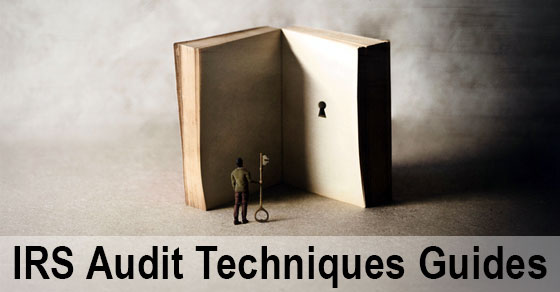Tax depreciation rules for business automobiles
- ByPolk & Associates
- Sep, 22, 2021
- All News & Information
- Comments Off on Tax depreciation rules for business automobiles
If you use an automobile in your business, you may wonder how depreciation tax deductions are determined. The rules are complicated, and special limits that apply to vehicles classified as passenger autos can make it take longer than expected to fully depreciate a vehicle. First, note that if you use the “standard mileage rate” (56 cents per business mile driven for 2021), a depreciation allowance is built into the rate and you don’t need to worry about the depreciation calculations. But if you choose to use the “actual expense method” to claim deductions on a passenger auto, depreciation is calculated each year based on the car’s cost, how much you use it for business and other factors.
Opening a new location calls for careful planning
- ByPolk & Associates
- Sep, 16, 2021
- All News & Information
- Comments Off on Opening a new location calls for careful planning
Is your business doing well enough for you to consider adding another location? “Fortune favors the bold,” goes the old saying. However, strained cash flow and staffing issues can severely disfavor the underprepared. Ask yourself fundamental questions such as: Will we be able to duplicate the success of our current location? How might expansion affect business at both places? Look at how you’re going to fund the endeavor. Ideally, the first location will generate enough revenue to cover some of the costs, but you may need to take on substantial debt. Consider the tax ramifications as well, such as paying property taxes on two locations. We can help you assess the feasibility of the idea.
Selling a home: Will you owe tax on the profit?
- ByPolk & Associates
- Sep, 16, 2021
- All News & Information
- Comments Off on Selling a home: Will you owe tax on the profit?
Many people have seen their home values increase recently. Be aware of the tax implications if you sell your home. If you’re selling your principal residence, you can exclude up to $250,000 ($500,000 for joint filers) of gain, if you meet certain requirements. For example, you must have owned the property for at least 2 years during the 5-year period ending on the sale date. If you sell your main home, and you qualify to exclude up to $250,000/$500,000 of gain, the excluded gain isn’t subject to the 3.8% net investment income tax (NIIT). However, gain that exceeds the exclusion limit is subject to the tax if your modified adjusted gross income is over a certain amount. Questions? Contact us.
Tax breaks to consider during National Small Business Week
- ByPolk & Associates
- Sep, 16, 2021
- All News & Information
- Comments Off on Tax breaks to consider during National Small Business Week
Sept. 13-17 has been declared National Small Business Week by the SBA. To commemorate, here’s a tax break to consider. Your business may be able to claim 100% bonus depreciation for asset additions. Under current law, first-year bonus depreciation is available for qualified new and used property that’s acquired and placed in service in 2021. That means your business may be able to deduct the entire cost of some or all asset purchases on this year’s return. To take advantage of this, you may want to make acquisitions before Dec. 31. The bonus depreciation tax break can also be used for eligible heavy SUVs, pickups and vans used over 50% for business. Contact us to help evaluate your options.
Think like a lender before applying for a business loan
- ByPolk & Associates
- Sep, 16, 2021
- All News & Information
- Comments Off on Think like a lender before applying for a business loan
As your business pushes forward, you may find yourself in need of cash. Before applying for a commercial loan, think like a lender to be as prepared as possible and know for sure that the loan is a good idea. Basically, a lender wants to know four things: 1) how much money you need, 2) what you’ll use it for, 3) when you need it by, and 4) when you’ll be able to pay it back. Discuss these questions thoroughly with your leadership team. Also consider the three C’s of your company: character (strength and reputation of management), capacity (soundness of your finances and financial plan) and collateral (viable assets to back the loan). Contact us for help with the loan process.
Claiming a theft loss deduction if your business is the victim of embezzlement
- ByPolk & Associates
- Sep, 16, 2021
- All News & Information
- Comments Off on Claiming a theft loss deduction if your business is the victim of embezzlement
If your business is victimized by theft, embezzlement or internal fraud, you may be able to claim a tax deduction for the loss. Keep in mind that a deductible loss can only be claimed for the year in which the loss is discovered, and that you must meet other tax-law requirements. Keep records to substantiate the claimed theft loss, including when you discovered the loss. If you receive an insurance payment or other reimbursement for the loss, that amount must be subtracted when computing the deductible loss for tax purposes. Contact us with any questions you may have about business theft and casualty loss tax deductions.
5 questions to ask about your marketing efforts
- ByPolk & Associates
- Sep, 06, 2021
- All News & Information
- Comments Off on 5 questions to ask about your marketing efforts
For many businesses, marketing requires a leap of faith that the benefits will outweigh the costs. Here are five questions that can help determine whether you’re on the right track: 1) What do we hope to accomplish? Identify what success looks like. 2) Where and how often will we spend the money? Choose which avenues you’ll traverse and the mix of recurring activity versus “one off” initiatives. 3) Can we track sources of new business, leads and customers? The right software can help. 4) Can we gauge brand awareness? Find ways to measure the impact of marketing efforts. 5) Are we prepared for an increase in demand? You might “suffer from success” if you can’t satisfy all your new customers!
You can only claim a casualty loss tax deduction in certain situations
- ByPolk & Associates
- Sep, 06, 2021
- All News & Information
- Comments Off on You can only claim a casualty loss tax deduction in certain situations
In recent weeks, some Americans have been victimized by severe storms, flooding, wildfires and other disasters. Unexpected disasters may cause damage to your home or personal property. The rules for deducting personal casualty losses on a tax return have changed through 2025. Specifically, taxpayers generally can’t deduct losses unless an event qualifies as a federally declared disaster. (The rules for business or income-producing property are different.) Another factor that now makes it harder to claim a casualty loss is that you must itemize deductions. Through 2025, fewer people will itemize because the standard deduction amounts have been greatly increased. Contact us if you need help.
Want to find out what IRS auditors know about your business industry?
- ByPolk & Associates
- Sep, 06, 2021
- All News & Information
- Comments Off on Want to find out what IRS auditors know about your business industry?
To prepare for a business audit, an IRS examiner generally does research about the specific industry and issues on the taxpayer’s return. Examiners may use IRS “Audit Techniques Guides (ATGs).” These guides are available on the IRS website. So your business can use them to gain insight into what the IRS is looking for in terms of compliance. Many ATGs target specific industries, such as architecture, art galleries and veterinary medicine. Others address issues that frequently arise in audits, such as executive compensation and passive activity losses. The IRS has revised or added new guides this year, including for construction and retail. For a complete list of ATGs: http://bit.ly/2rh7umD
Possible tax consequences of guaranteeing a loan to your corporation
- ByPolk & Associates
- Aug, 27, 2021
- All News & Information
- Comments Off on Possible tax consequences of guaranteeing a loan to your corporation
What if you guarantee a loan to your closely held corporation? Before agreeing to act as a guarantor of a debt of your corporation, be aware of the possible tax consequences. If the business defaults on the loan, and you make good on the obligation, the payment of principal or interest generally results in either a business or a nonbusiness bad debt deduction. If it’s a business bad debt, it’s deductible against ordinary income. A business bad debt can be either totally or partly worthless. If it’s a nonbusiness bad debt, it’s deductible as a short-term capital loss (subject to certain limitations). A nonbusiness bad debt is deductible only if it’s totally worthless.










